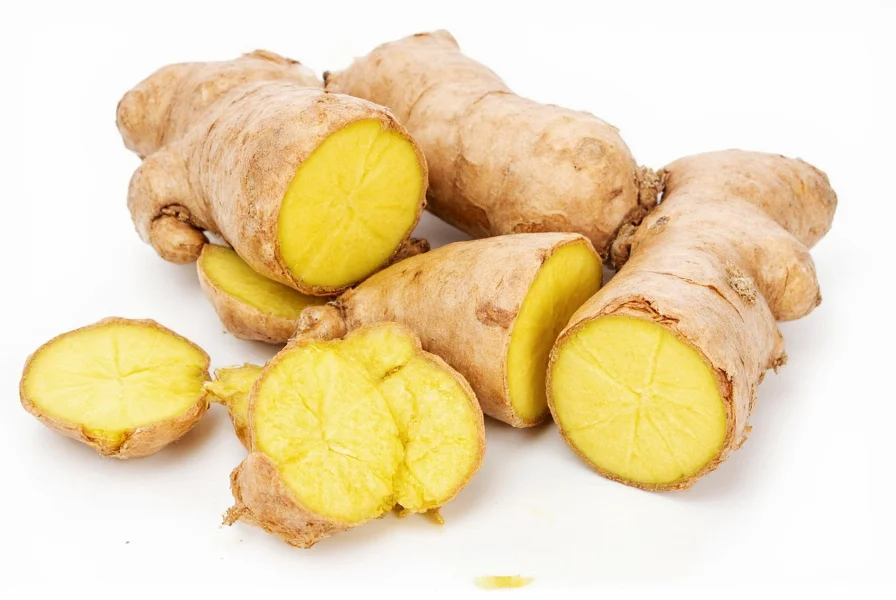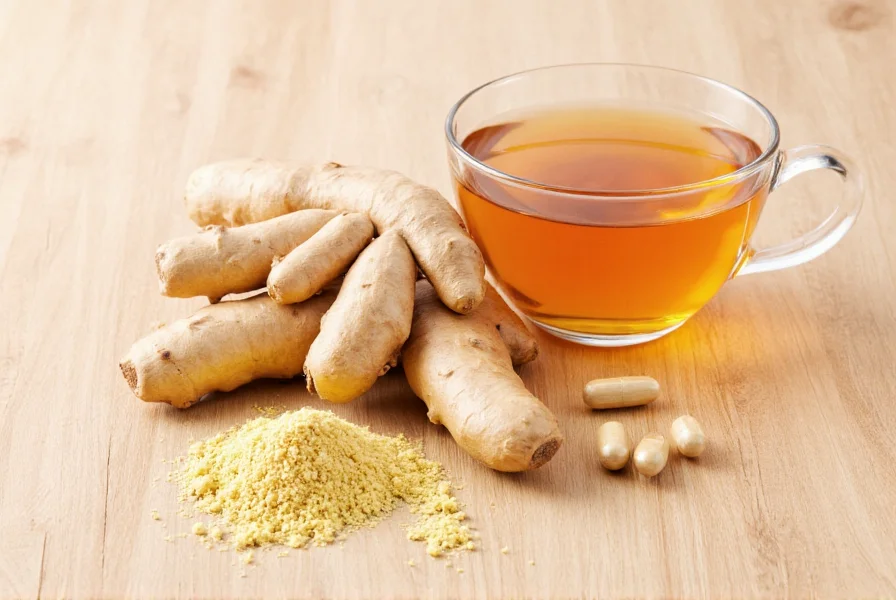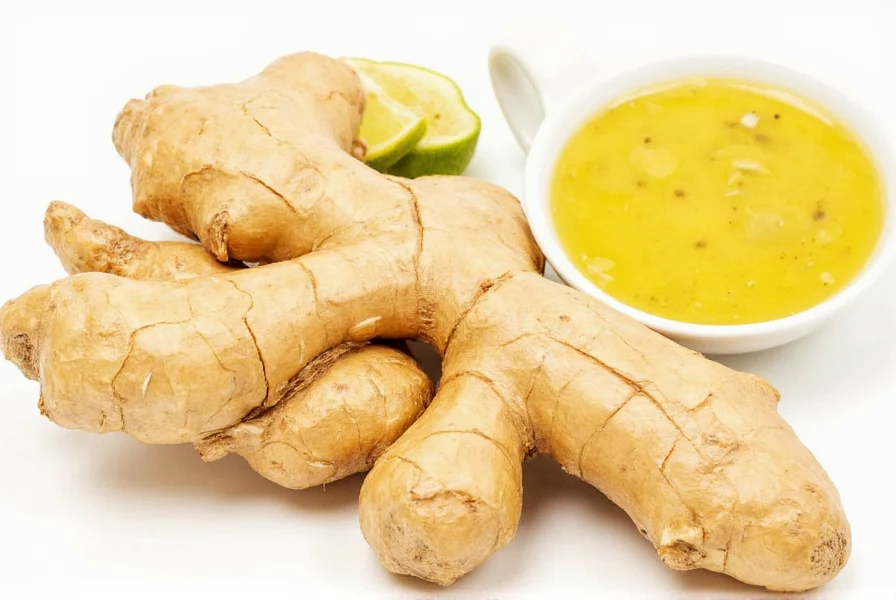Understanding Ginger's Active Compounds
Ginger root (Zingiber officinale) contains over 100 bioactive compounds, with gingerols being the most studied. These compounds give ginger its distinctive flavor and therapeutic properties. When ginger is dried or cooked, gingerols transform into shogaols, which have even stronger anti-inflammatory effects. This chemical complexity explains why natural remedies with ginger have been used for thousands of years across Asian and Middle Eastern medicine systems.
Scientifically Supported Health Benefits of Ginger Root
Nausea and Digestive Relief
One of the most well-documented health benefits of ginger root is its ability to combat nausea. Multiple clinical trials confirm ginger's effectiveness for:
- Morning sickness during pregnancy (studies show 1g daily reduces symptoms)
- Post-operative nausea
- Chemotherapy-induced nausea
- Motion sickness
A 2020 meta-analysis in Complementary Therapies in Medicine found ginger significantly outperformed placebos for nausea relief. For ginger root for digestion, it stimulates saliva, bile, and gastric enzymes while accelerating stomach emptying.
| Condition | Effective Dosage | Timeframe for Results |
|---|---|---|
| Morning sickness | 1-1.5g powdered ginger | Within 24 hours |
| Osteoarthritis pain | 500mg-1g daily | 2-4 weeks |
| Post-exercise muscle pain | 2g raw ginger | 24 hours after consumption |
Anti-Inflammatory and Pain-Relieving Properties
The anti-inflammatory properties of ginger make it valuable for managing chronic pain conditions. Gingerols inhibit inflammatory pathways similar to NSAIDs but without the gastrointestinal side effects. Research published in Arthritis & Rheumatism demonstrated that ginger extract reduced osteoarthritis knee pain by 30% compared to placebo. For those seeking ginger root for arthritis pain, consistent daily use appears necessary for optimal results.

Cardiovascular and Metabolic Benefits
Emerging research suggests ginger may support heart health through multiple mechanisms. Studies indicate ginger can:
- Lower LDL cholesterol by up to 17% (Journal of Medicinal Food, 2018)
- Reduce blood pressure through calcium channel blocking effects
- Improve insulin sensitivity in type 2 diabetes
- Decrease markers of oxidative stress
While these findings are promising, researchers note that scientific evidence for ginger benefits in cardiovascular health requires larger human trials.
Antioxidant and Immune Support
Ginger's potent antioxidant compounds combat oxidative stress that contributes to chronic disease. Unlike synthetic antioxidants, ginger provides a complex mixture that works synergistically. The antioxidant effects of ginger root may enhance immune function by reducing inflammation that suppresses immune responses. However, ginger shouldn't replace proven immune-boosting strategies like vaccination and proper nutrition.
How to Use Ginger for Maximum Benefits
Understanding how to use ginger for health benefits properly affects its efficacy:
Preparation Methods
- Fresh ginger: Peel and slice or grate for teas, smoothies, or cooking (most potent form)
- Dried powder: More concentrated; use 1/4 teaspoon equals 1 inch fresh ginger
- Extracts/tinctures: Standardized for gingerol content; follow label instructions
- Capsules: Typically 250-500mg; look for standardized extracts
Recommended Dosage Guidelines
The World Health Organization recommends 1-4g of ginger daily for medicinal use. For specific conditions:
- Nausea: 1g divided doses
- Inflammation: 2g daily
- Digestive support: 2g before meals
Exceeding 4g daily may cause side effects. Consult your healthcare provider before using ginger medicinally if you have gallstones, are pregnant, or take blood thinners.

Safety Considerations and Potential Side Effects
While generally safe as a food, ginger root side effects may include:
- Heartburn or stomach upset (especially with high doses)
- Mouth or throat irritation
- Blood thinning effects (caution with anticoagulants)
- Potential interactions with diabetes medications
Pregnant women should limit intake to 1g daily for nausea relief. Those with bleeding disorders should avoid high-dose ginger supplements. Always discuss ginger root dosage recommendations with your doctor before using it therapeutically.
Realistic Expectations for Ginger's Health Benefits
Ginger works best as part of a comprehensive health approach rather than a standalone cure. Its effects are generally subtle and build over time. While research supports specific health benefits of ginger root, it's not a miracle cure. Incorporate ginger into your diet consistently while maintaining other healthy habits for optimal results. Remember that individual responses vary based on genetics, health status, and preparation method.
What's the most effective way to consume ginger for nausea relief?
Fresh ginger tea made from 1-2 inches of grated ginger steeped for 10 minutes provides the most immediate nausea relief. Studies show 1g of ginger powder in capsule form taken 30 minutes before potential nausea triggers is also effective. For morning sickness, consistent daily use yields better results than occasional use.
How long does it take for ginger to reduce inflammation?
Research indicates it typically takes 2-4 weeks of consistent daily use (500mg-1g) to notice significant anti-inflammatory effects from ginger. A study in the Journal of Medicinal Food found measurable reductions in inflammatory markers after 28 days of supplementation. For acute inflammation, effects may be felt within 24 hours, but chronic conditions require sustained use.
Can ginger interact with blood pressure medications?
Yes, ginger may enhance the effects of blood pressure medications due to its mild blood pressure-lowering properties. If you take antihypertensive drugs, monitor your blood pressure closely when starting ginger supplementation. Consult your physician before combining ginger with blood pressure medications, especially if you're taking calcium channel blockers or ACE inhibitors.
Is fresh ginger more effective than powdered ginger for health benefits?
Fresh ginger contains higher levels of gingerols, while dried ginger has more shogaols which are more potent anti-inflammatories. For nausea relief, fresh ginger appears slightly more effective. For anti-inflammatory benefits, dried ginger powder may offer advantages. Both forms provide significant health benefits when used appropriately for specific conditions.
Can I take ginger daily for long-term health benefits?
Yes, daily ginger consumption at moderate doses (1-2g) is generally safe for long-term use. Many traditional medicine systems incorporate ginger daily as part of a healthy diet. However, if using therapeutic doses (3-4g daily), take periodic breaks to prevent potential tolerance or mild side effects. Consult your healthcare provider for personalized advice based on your health status and medications.











 浙公网安备
33010002000092号
浙公网安备
33010002000092号 浙B2-20120091-4
浙B2-20120091-4